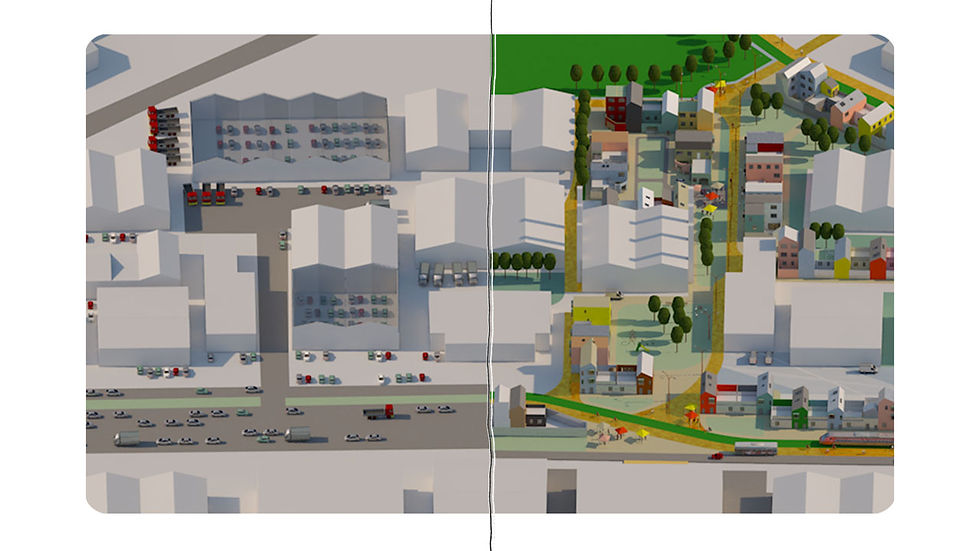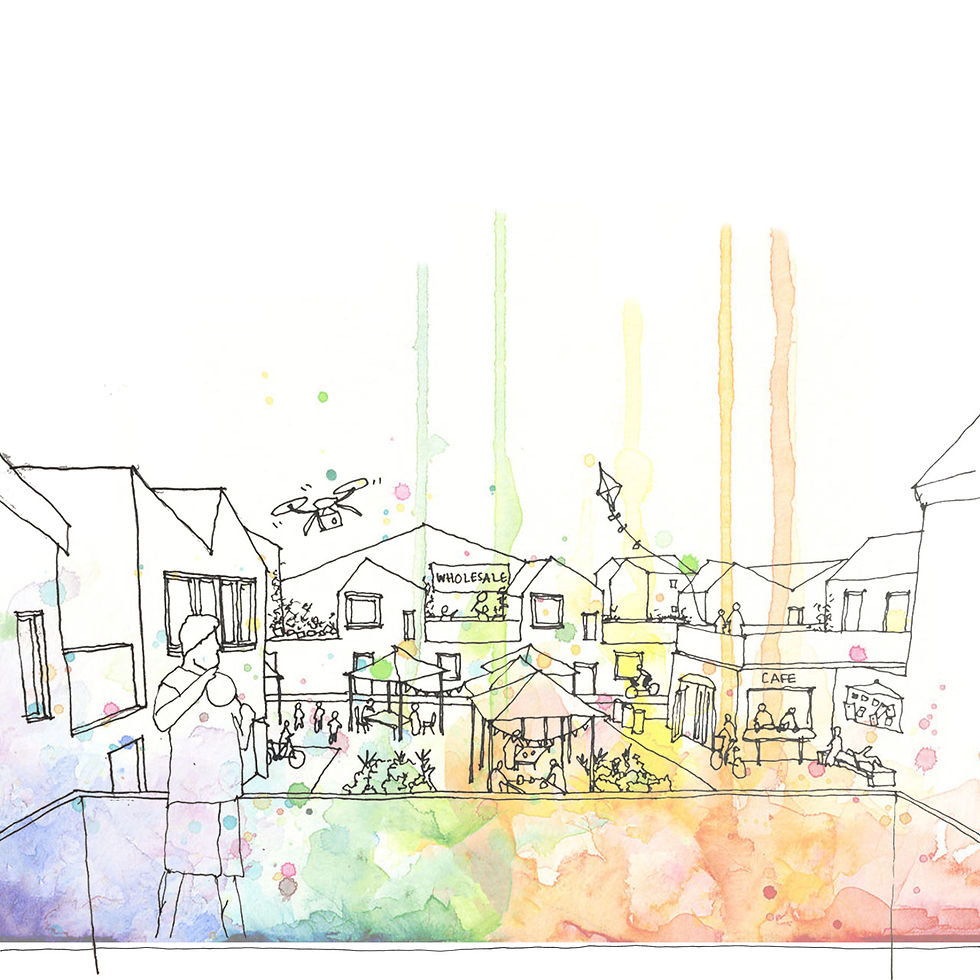


unexpected communities:
questioning categories to create feminist cities
‘Unexpected Communities’ explores city zoning and categorisation through inequalities and hierarchies to establish inclusive live-work environments built upon gendered requirements, facilitating systemic change to form safer and greener streets.
While pioneering work in the planning sector has already focused on women in the city, this thesis presents an industrial estate as a key pilot scheme to measure the feasibility of mixed-use, feminist neighbourhoods through qualitative and quantitative investigations in zoning practices and spatial use and occupation, with an ultimate goal to break down barriers between minority groups and work.
The economically driven planning system in Wales continues to support growth in all areas of legislation, with the construction industry accounting for a staggering 38% of CO2 emissions and rising [Neill 2020]. What if we were to be growth agnostic, a term coined by Kate Raworth in ‘Doughnut Economics’, and instead promote economies that work for the people themselves? Can we create a built environment that supports such economic revolutions and capitalises on the messy display of light industrial estates?
The thesis looks to remove all vehicular based industry from Penarth Road, repurpose existing industrial sheds to cater for a broader range of activities, and reusing industrial materials at the domestic scale to create inclusive spaces. It explores methods of combatting various forms of pollution, such as air quality and noise, so that domestic spaces and industrial builds can operate symbiotically. Such design decisions have been based upon Mary Douglas’ work “dirt is matter out of place” [Douglas 1966: 44].
